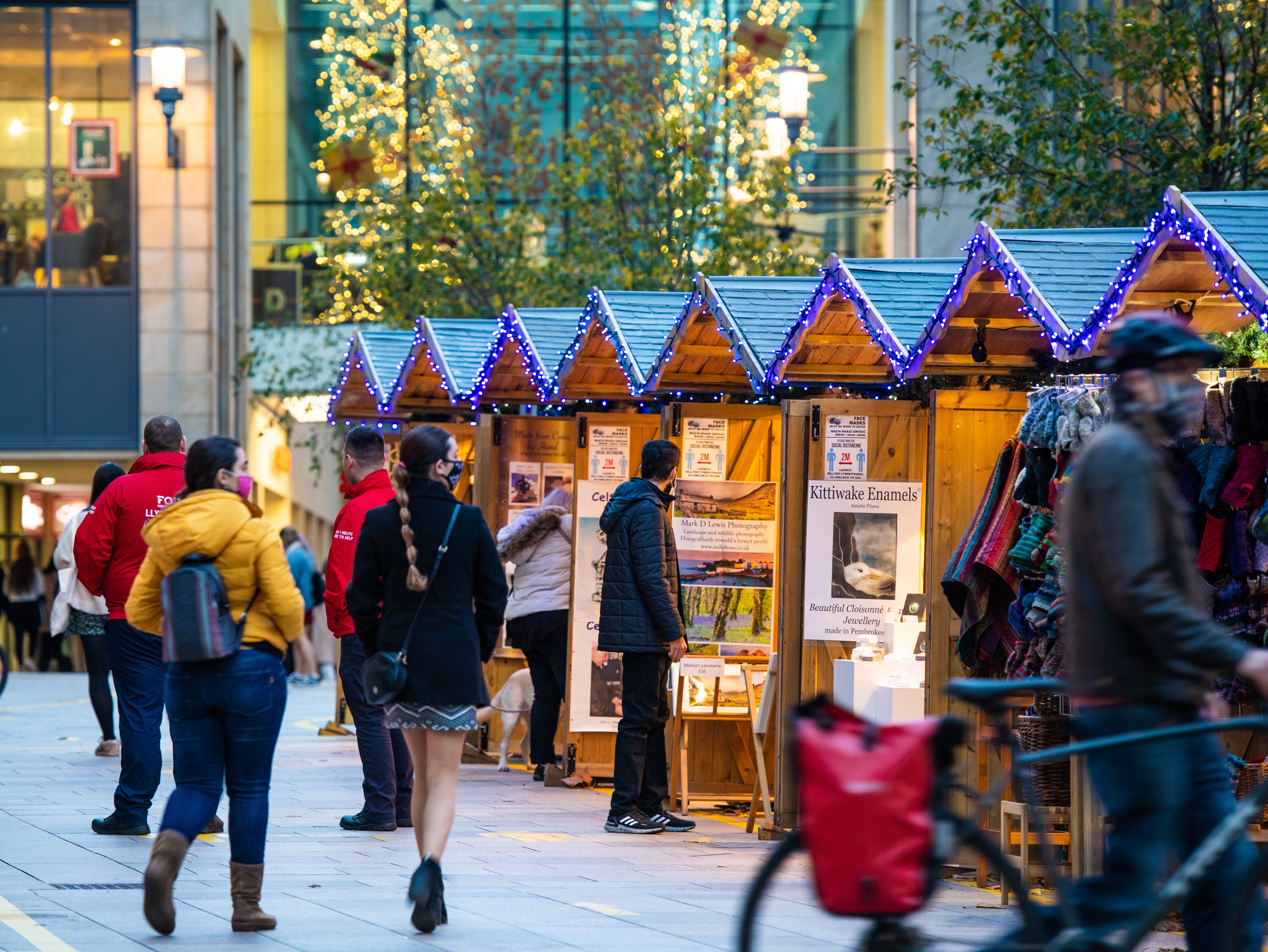Christmas markets see plunge in trade ‘due to Brexit red tape’
Exclusive: Bureaucracy sees slump in EU traders coming to Britain, with London’s West End hit by 51 per cent decline

Your support helps us to tell the story
From reproductive rights to climate change to Big Tech, The Independent is on the ground when the story is developing. Whether it's investigating the financials of Elon Musk's pro-Trump PAC or producing our latest documentary, 'The A Word', which shines a light on the American women fighting for reproductive rights, we know how important it is to parse out the facts from the messaging.
At such a critical moment in US history, we need reporters on the ground. Your donation allows us to keep sending journalists to speak to both sides of the story.
The Independent is trusted by Americans across the entire political spectrum. And unlike many other quality news outlets, we choose not to lock Americans out of our reporting and analysis with paywalls. We believe quality journalism should be available to everyone, paid for by those who can afford it.
Your support makes all the difference.The number of businesses taking part in the UK’s Christmas markets has slumped by more than a fifth since Brexit, it has emerged – with some of Britain’s biggest cities hit hardest by the decline.
There will be 21 per cent fewer traders at the first post-Covid markets this year, compared with pre-Brexit numbers, local authority figures shared with The Independent show.
UK capitals saw some of the steepest downturns, with Edinburgh’s flagship Christmas market expected to see around half as many traders this year as before the UK left the EU.
London’s West End reported the largest decline of all those surveyed, collapsing from 247 businesses trading in 2019 to just 119 this year – a decline of 51 per cent.
The internationalist campaign group Best for Britain – which obtained figures from more than 50 councils following freedom of information requests – said it was clear that post-Brexit red tape was a major “deterrent” to seasonal traders coming from EU countries.
Leeds was forced to scrap its “Christkindelmarkt” this year, with organisers citing post-Brexit “costs and complications” affecting traders from Germany as a major factor in the cancellation.
While other factors, including increased energy costs and roadworks, are having an impact, leading market organisers say the industry has been hit hard by post-Brexit bureaucracy. Market Place Europe – which operates Christmas markets around the UK – said post-Brexit “restrictions and requirements” had led many EU traders to pull out.
“Brexit appears to have had a significant impact on the number of EU traders attending the Christmas markets in the UK,” managing director Allan Hartwell told The Independent. “From what I am hearing from other Christmas market operators, there are far fewer EU traders in attendance,” he added. “Leeds market has been cancelled this year, and Southampton almost had a similar fate, as many of the core traders didn’t travel from Germany.”
Mr Hartwell noted that because of arrangements set out in the Northern Ireland protocol, traders from the EU can more easily operate in Belfast than in cities in mainland Britain. Belfast’s Christmas market bucked the wider trend by growing by 15 per cent compared with 2019.
Naomi Smith, chief executive of Best for Britain – which campaigns for closer ties with the EU – said it was “clear that Christmas markets across the country are also feeling the fallout from this panto government’s turkey of a Brexit deal”.
She added: “Brexit red tape has made doing business more expensive and is an effective deterrent to European traders setting up shop in UK city centres. The government must work to rebuild a closer economic partnership with our closest neighbours or we can expect more of the same next year.”
Christmas markets contributed up to £500m in direct spending across England and Wales in 2017, according to the Local Government Association.
The latest findings add to concerns that Brexit is damaging seasonal economies, after previous research showed a 45 per cent slump in the number of British artists in Europe’s summer music festivals.
Music industry experts have also pointed to the impact of Brexit on UK festival costs, after it was announced that Glastonbury tickets will be 26 per cent more expensive next year.
Subscribe to Independent Premium to bookmark this article
Want to bookmark your favourite articles and stories to read or reference later? Start your Independent Premium subscription today.






Join our commenting forum
Join thought-provoking conversations, follow other Independent readers and see their replies
Comments